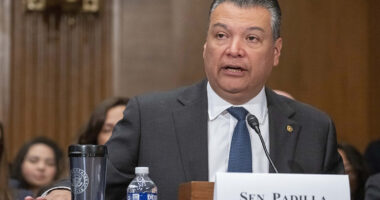In an antitrust case filed by Fortnite maker Epic Games against Apple, a federal judge has issued a strong reprimand to Apple, stating that the tech giant deliberately violated a court injunction.
The judge, Yvonne Gonzalez Rogers, had initially mandated that Apple reduce the restrictions around its exclusive in-app payment system and allow developers to provide links to alternative payment methods. She found Apple in violation of the 2021 injunction, which aimed to curtail the company’s anticompetitive behavior and pricing.
“Apple’s continued attempts to interfere with competition will not be tolerated,” Gonzalez Rogers said in the ruling, which held Apple in contempt.
As a result, Apple has been directed to cease obstructing developers from communicating with users and refrain from implementing new commissions on off-app purchases.
Epic CEO and founder Tim Sweeney said on X the company will return Fortnite to Apple’s U.S. App Store next week.
Apple did not immediately respond to a request for comment.
Epic first filed an antitrust lawsuit in 2020 alleging that Apple had built an illegal monopoly around its popular App Store that makes billions of dollars annually from a then-exclusive payment system collecting commissions ranging from 15% to 30% on in-app commerce.
Although Gonzalez Rogers had rejected the monopoly claims, she ordered Apple to lower the barriers protecting its previously exclusive payment system for in-app digital transactions and allow developers to display links to alternative options. The Supreme Court rejected Apple’s appeal in the case in January 2024.
“In stark contrast to Apple’s initial in-court testimony, contemporaneous business documents reveal that Apple knew exactly what it was doing and at every turn chose the most anticompetitive option,” the judge wrote Wednesday. She accused the company’s Alex Roman, vice-president for finance, of “outright” lying under oath.
“Internally, (longtime Apple executive) Phillip Schiller had advocated that Apple comply with the injunction, but (CEO) Tim Cook ignored Schiller and instead allowed Chief Financial Officer Luca Maestri and his finance team to convince him otherwise. Cook chose poorly,” Gonzalez Rogers wrote.
The judge referred the matter to the U.S. Attorney for the Northern District of California to investigate whether criminal contempt proceedings are appropriate.
Copyright © 2025 by The Associated Press. All Rights Reserved.

















